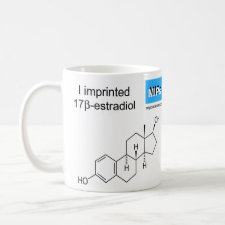
Authors: Du B, Qu TT, Chen Z, Cao XH, Han SP, Shen GP, Wang L
Article Title: A novel restricted access material combined to molecularly imprinted polymers for selective solid-phase extraction and high performance liquid chromatography determination of 2-methoxyestradiol in plasma samples.
Publication date: 2014
Journal: Talanta
Volume: 129
Page numbers: 465-472.
DOI: 10.1016/j.talanta.2014.05.005
Alternative URL: http://www.sciencedirect.com/science/article/pii/S0039914014003713
Abstract: A feasibility study was performed in order to ensure the possibilities in using a restricted access material combined to molecularly imprinted polymers (RAM-MIP) as sorbent material in solid phase extraction (SPE) for clean-up of 2-methoxyestradiol (2-ME) from plasma samples. The MIP with hydrophilic external layer was designed by precipitation polymerization. The polymer was characterized by thermogravimetric analysis (TGA) and scanning electron microscope (SEM). The use of analogs of 2-ME as templates, in combination with a chromatographic separation of the analytes in the sample, overcame the problem of the template bleeding. To demonstrate the property of the RAM-MIP obtained, a comparison of commercially available C18 SPE was performed. The results showed that the RAM-MISPE recoveries were significantly higher than that of C18 SPE for 2-ME in trace concentration. During the extraction process, 2-ME was sufficiently cleaned for further chromatographic analysis with no interferences from template leakage and matrix. Good linearity was obtained from 0.06 to 20 ++g mLGêÆ1 with the correlation coefficient r >0.9991. The coefficient of variation of the inter-assay precision was less than 11.9%. The recoveries of 2-ME in rat plasma at three spiked levels were in the range of 99.10-101.00%. Based on the analytical validation results, the proposed method (RAM-MIP off-line SPE/HPLC) can be a useful tool to determine 2-ME in rat plasma samples
Template and target information: 2-methoxyestradiol, 2-ME
Author keywords: Restricted access matrix, solid phase extraction, molecular imprinted polymers, 2-Methoxyestradiol, high performance liquid chromatography



Join the Society for Molecular Imprinting

New items RSS feed
Sign-up for e-mail updates:
Choose between receiving an occasional newsletter or more frequent e-mail alerts.
Click here to go to the sign-up page.
Is your name elemental or peptidic? Enter your name and find out by clicking either of the buttons below!
Other products you may like:
 MIPdatabase
MIPdatabase









